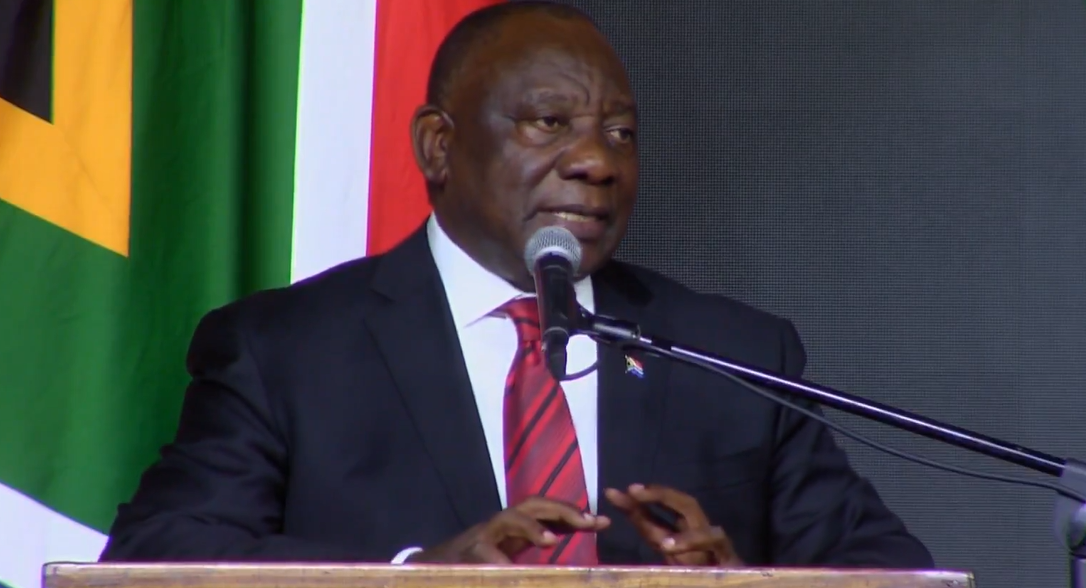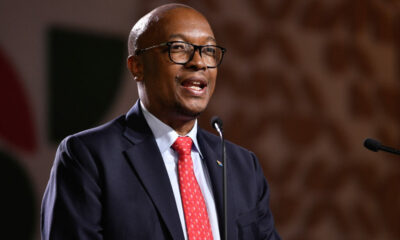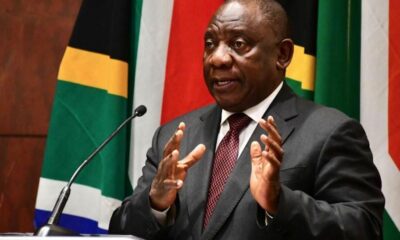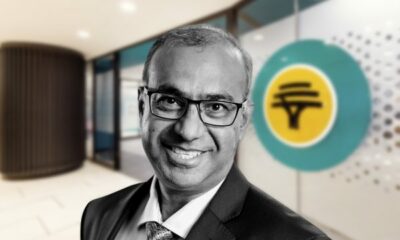News
Transformation Is a Must, Not a Favor, Says Ramaphosa Amid Starlink Controversy

South Africa’s president doubles down on economic transformation as Starlink licensing battle heats up
South Africa finds itself at a crossroads again, where economic growth meets the hard reality of transformation. President Cyril Ramaphosa’s recent strong stance on the Broad-Based Black Economic Empowerment (B-BBEE) Act reminds us that this is not just about ticking policy boxes—it’s about healing a nation scarred by decades of inequality.
The issue has taken center stage after Communications Minister Solly Malatsi’s proposal to ease B-BBEE requirements for satellite internet providers like Elon Musk’s Starlink sparked fierce debate. Critics, including the Economic Freedom Fighters (EFF) and the uMkhonto weSizwe (MK) Party, warn this could open the door for foreign giants to sidestep South Africa’s empowerment laws, threatening the very essence of the country’s transformation agenda.
Transformation: A Constitutional Imperative
In his weekly newsletter, Ramaphosa didn’t mince words. He reminded the nation that B-BBEE and the Employment Equity Act are not negotiable preferences but constitutional mandates. He invoked the Freedom Charter’s powerful declaration that “the people shall share in the country’s wealth,” underscoring that transformation is central to fulfilling South Africa’s promise of justice and opportunity for all.
South Africans know the weight of this history. For generations, systemic exclusion kept many locked out of economic participation. Since 1994, legislative tools like B-BBEE have been instrumental in shifting ownership, management, and skills development towards inclusivity. Women-owned businesses have seen notable growth, and black households have experienced a measurable rise in real income—46% for black Africans since 2006, according to Statistics South Africa.
Yet, the economic gap remains glaring. White households still earn nearly five times more than their black counterparts, a stark reminder of how far transformation still has to go.
The Starlink Standoff and What It Means for South Africa
The spotlight on Starlink isn’t just about licensing—it’s a microcosm of a larger struggle. Elon Musk’s company refuses to meet the requirement that foreign telecoms cede 30% ownership to historically disadvantaged South Africans. This stand-off has become symbolic of the tension between foreign investment and local empowerment.
The backlash hasn’t been subtle. The EFF called the proposal a sneaky way for multinationals to bypass the law. The MK Party went further, branding it a “treacherous blueprint” aimed at dismantling state power and making deals with foreign tech giants at the expense of local empowerment.
Ramaphosa’s government, however, remains steadfast. To him, backing away now would be a betrayal of the constitutional commitment South Africa made decades ago.
Why Transformation and Growth Must Go Hand in Hand
The president struck a critical balance: economic growth without transformation leaves many behind, while transformation without growth is simply unsustainable. It’s a tough needle to thread, especially during a global “polycrisis” of conflict, economic instability, and environmental threats.
His call for the private sector to actively participate in transformation—beyond just improving B-BBEE scores—strikes a chord. He urged banks to make funding accessible to black entrepreneurs and pushed for public procurement policies to prioritize women, youth, and disabled-owned businesses.
This is more than just politics—it’s a call to build a resilient economy that honors South Africa’s diverse talent and potential.
The International Context and Diplomatic Pressures
Complicating matters, the geopolitical stage adds tension. Earlier this year, former US President Donald Trump issued an executive order isolating South Africa over alleged anti-white policies, a move many saw as aligning with Musk’s defiance of empowerment rules.
Ramaphosa responded by leading a delegation to Washington, working to protect trade relations and invite investment despite these diplomatic headwinds.
What This Means for South Africans
For everyday South Africans, Ramaphosa’s message is clear: transformation isn’t charity or an optional policy; it’s essential for national unity and sustainable growth. Social media responses have been mixed, with some applauding the president’s firm stance on empowerment, while others fear foreign investment might be scared off by stringent regulations.
Yet, the underlying question remains—how does South Africa balance opening its doors to global innovation while ensuring that its people, long denied economic participation, finally get their rightful share?
{Source: IOL}
Follow Joburg ETC on Facebook, Twitter , TikTok and Instagram
For more News in Johannesburg, visit joburgetc.com



























